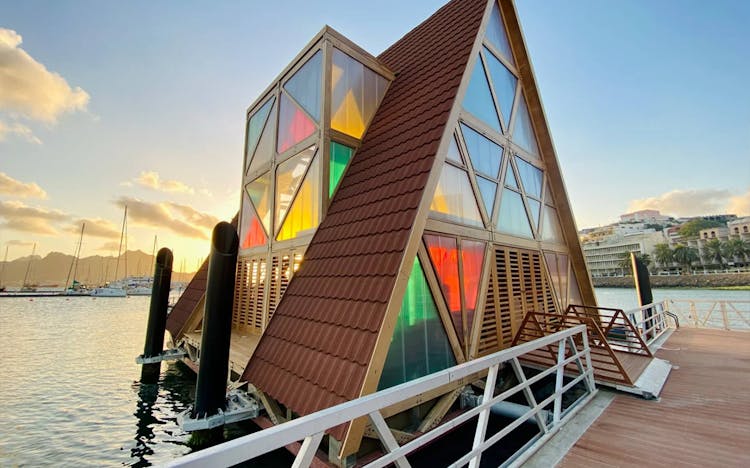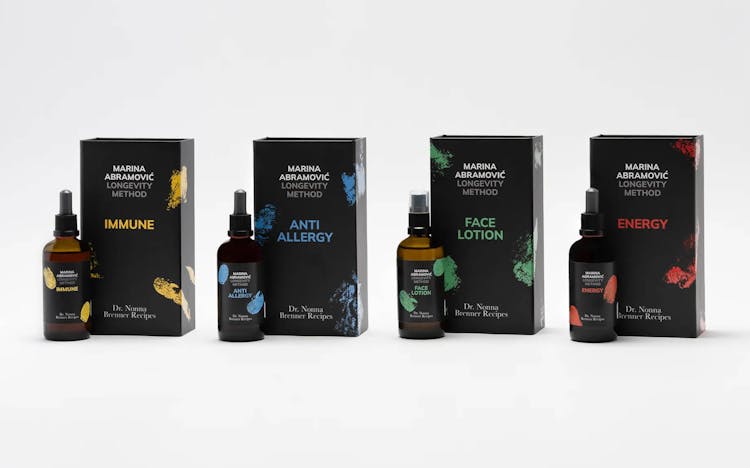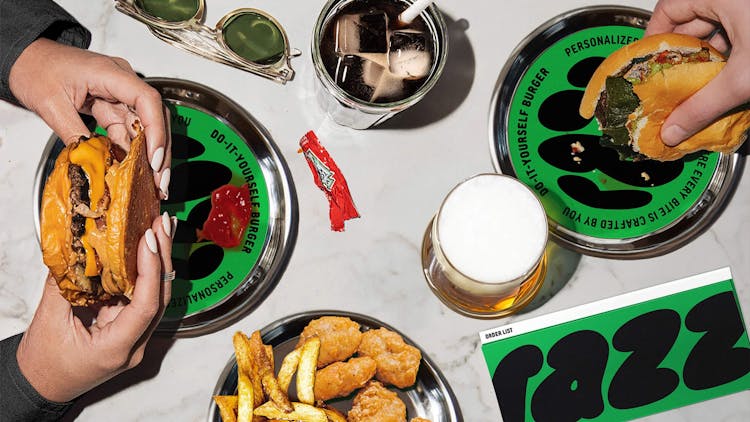6 min reading
The Brand Dispatch

We are used to thinking that AI helps us speed up life, processes, thoughts and work. Yet there is a branch of artificial intelligence dedicated precisely to slowing down our life.
A paradox? Surely. But also the awareness that we need to rediscover the slowness of our passions. Despite AI, but also thanks to AI which "will also allow us to find lost time" says Sam Altam during the conference held together with Jack Kornfield, one of the most popular meditation teachers. On this occasion, Roshibot was presented, the new Chatgpt trained on the basis of the teachings of the Zen master Suzuki Roshi, who teaches us to meditate. But also to cultivate and elevate passions that require time and patience such as birdwatching. Developed by Swarovski Optik, the world's first binoculars supported by artificial intelligence have been launched which allow the user to identify thousands of wild animals in real time by capturing photos and videos, sharing GPS coordinates, connecting to the smartphone with Bluetooth.
From meditation to birdwatching... can AI really help us reconnect with a slower pace of life? After all, technology has always brought with it all human paradoxes.
A paradox? Surely. But also the awareness that we need to rediscover the slowness of our passions. Despite AI, but also thanks to AI which "will also allow us to find lost time" says Sam Altam during the conference held together with Jack Kornfield, one of the most popular meditation teachers. On this occasion, Roshibot was presented, the new Chatgpt trained on the basis of the teachings of the Zen master Suzuki Roshi, who teaches us to meditate. But also to cultivate and elevate passions that require time and patience such as birdwatching. Developed by Swarovski Optik, the world's first binoculars supported by artificial intelligence have been launched which allow the user to identify thousands of wild animals in real time by capturing photos and videos, sharing GPS coordinates, connecting to the smartphone with Bluetooth.
From meditation to birdwatching... can AI really help us reconnect with a slower pace of life? After all, technology has always brought with it all human paradoxes.

As we try to tackle the climate crisis, we are opening ourselves up to new scenarios that could dramatically, but not necessarily for the worse, change our way of life.
An example: in response to the rapid rise in sea levels and the risk of flooding, instead of building dams to try to stem the water, or raising houses on stilts, some architects and designers are planning a future in which we live with water and on the water.
It's called Floating Architecture and includes futuristic proposals for entire "climate-resilient" floating cities (including an ambitious ocean settlement in South Korea and one large enough to accommodate 20,000 people in the Maldives) but also existing projects, from Lagos to Rotterdam, that show more concretely what our life on the water might look like.
“Water Cities Rotterdam” is the exhibition that presents the work of NLÉ, an architecture studio that has researched and tested floating architecture around the world. These are not boats converted into houses like the traditional House Boats of Amsterdam, but real floating houses, complete with roof, windows, terrace and balconies.
An example: in response to the rapid rise in sea levels and the risk of flooding, instead of building dams to try to stem the water, or raising houses on stilts, some architects and designers are planning a future in which we live with water and on the water.
It's called Floating Architecture and includes futuristic proposals for entire "climate-resilient" floating cities (including an ambitious ocean settlement in South Korea and one large enough to accommodate 20,000 people in the Maldives) but also existing projects, from Lagos to Rotterdam, that show more concretely what our life on the water might look like.
“Water Cities Rotterdam” is the exhibition that presents the work of NLÉ, an architecture studio that has researched and tested floating architecture around the world. These are not boats converted into houses like the traditional House Boats of Amsterdam, but real floating houses, complete with roof, windows, terrace and balconies.

Models and influencers, but also singers, actresses and artists. More and more celebrities are launching their own cosmetic line at the height of their success, transforming themselves into beauty entrepreneurs. Selena Gomez, Rihanna, Lady Gaga, Kim Kardashian, Gwyneth Paltrow, Michelle Hunziker, but also male stars such as Brad Pitt, Harry Style or the rapper Machine Gun Kelly.
But today their testimonials have also begun to arrive from the art world. This is the famous case of Marina Abramović who at 77 years old launched herself into beauty by signing her exclusive beauty line. The Abramović Longevity Method promotes a holistic approach to aging with natural ingredients that promise balance, health and authentic beauty. Because to conquer an increasingly informed, responsive and aware audience, the popularity of the character is not enough, we need a solid marketing strategy that cannot ignore important issues such as body positivity, acceptance of diversity, self-love and above all attention to the environment. Michelle Nolte, creative director of the trend agency Beauty Streams, declares:
“Pushing the metamorphosis of famous people into beauty brands is the awareness that the consumer-celebrity bond needs to be increasingly stronger and more valuable. By creating cosmetic lines that represent their values and identity, celebrities are able to establish closer relationships with their fans and turn them into consumers."
But today their testimonials have also begun to arrive from the art world. This is the famous case of Marina Abramović who at 77 years old launched herself into beauty by signing her exclusive beauty line. The Abramović Longevity Method promotes a holistic approach to aging with natural ingredients that promise balance, health and authentic beauty. Because to conquer an increasingly informed, responsive and aware audience, the popularity of the character is not enough, we need a solid marketing strategy that cannot ignore important issues such as body positivity, acceptance of diversity, self-love and above all attention to the environment. Michelle Nolte, creative director of the trend agency Beauty Streams, declares:
“Pushing the metamorphosis of famous people into beauty brands is the awareness that the consumer-celebrity bond needs to be increasingly stronger and more valuable. By creating cosmetic lines that represent their values and identity, celebrities are able to establish closer relationships with their fans and turn them into consumers."

In the UK, 1 in 7 people from ethnic minorities suffer episodes of discrimination in the world of communication: an unexpected piece of data from the Advertising Association's All in census.
MEFA (Marketing Ethnic Faculty Association) is a membership organization dedicated to giving more visibility and recognition to ethnic minorities working in media and advertising. The group was founded by several marketing and communications leaders who seek to bridge the representation gap in a sector which, as trendsetters, must be able to disseminate, reward and enhance the work of all ethnic groups in the world.
Founded in 2008 in the UK, MEFA aims to represent ethnic minority talent by helping them thrive in the media and advertising sector through events, forums and awards. A social initiative, which as often happens, has a win-win ambition. Increasing ethnic diversity in media and advertising also means enriching the sector with creativity, innovation and potential.
MEFA (Marketing Ethnic Faculty Association) is a membership organization dedicated to giving more visibility and recognition to ethnic minorities working in media and advertising. The group was founded by several marketing and communications leaders who seek to bridge the representation gap in a sector which, as trendsetters, must be able to disseminate, reward and enhance the work of all ethnic groups in the world.
Founded in 2008 in the UK, MEFA aims to represent ethnic minority talent by helping them thrive in the media and advertising sector through events, forums and awards. A social initiative, which as often happens, has a win-win ambition. Increasing ethnic diversity in media and advertising also means enriching the sector with creativity, innovation and potential.

